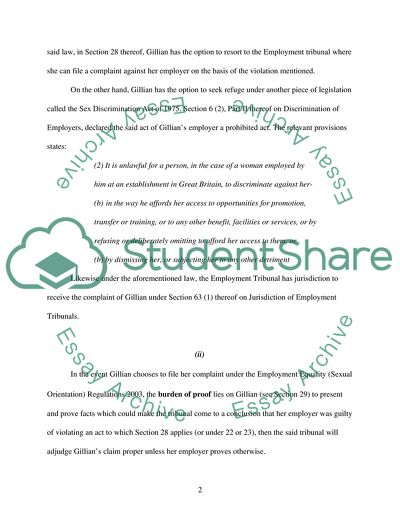Cite this document
(Discrimination Law in Great Britain Case Study Example | Topics and Well Written Essays - 2250 words, n.d.)
Discrimination Law in Great Britain Case Study Example | Topics and Well Written Essays - 2250 words. Retrieved from https://studentshare.org/law/1713599-discrimination-law
Discrimination Law in Great Britain Case Study Example | Topics and Well Written Essays - 2250 words. Retrieved from https://studentshare.org/law/1713599-discrimination-law
(Discrimination Law in Great Britain Case Study Example | Topics and Well Written Essays - 2250 Words)
Discrimination Law in Great Britain Case Study Example | Topics and Well Written Essays - 2250 Words. https://studentshare.org/law/1713599-discrimination-law.
Discrimination Law in Great Britain Case Study Example | Topics and Well Written Essays - 2250 Words. https://studentshare.org/law/1713599-discrimination-law.
“Discrimination Law in Great Britain Case Study Example | Topics and Well Written Essays - 2250 Words”. https://studentshare.org/law/1713599-discrimination-law.


